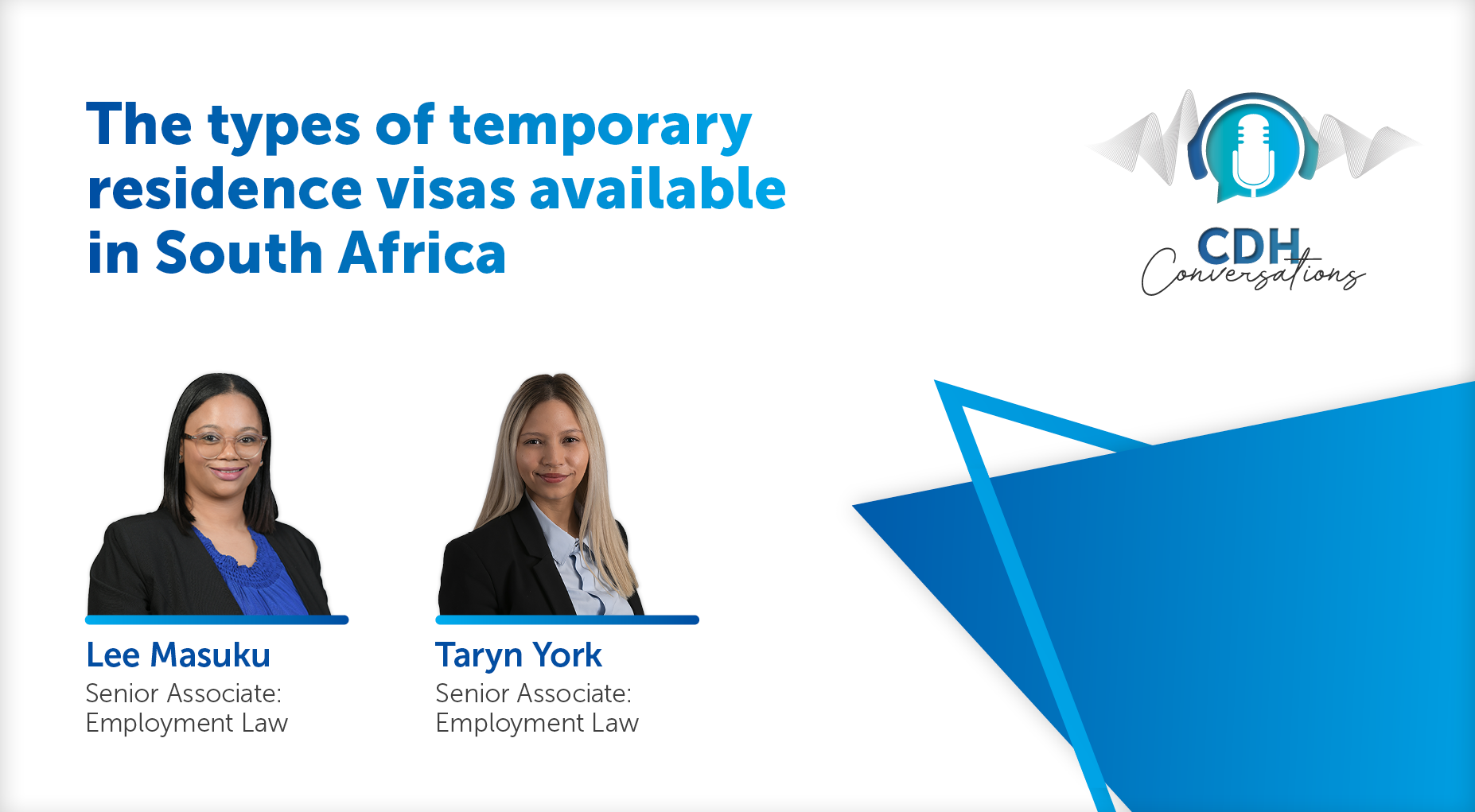Summary of the CCMA and Labour Court rules during lockdown
CCMA
Communication, Operations, Service and Filing
- Opening date:20/05/2020.
- Electronic communication is preferred; parties to provide email addresses.
- Service, filing and referrals physically, email or by fax. If unsigned referrals, party must be contacted for signature.
- CCMA communications, rulings, arbitration awards, ad hoc directives, settlement agreements, subpoenas to take place electronically to be printed or stored electronically.
- Physical attendance, service and collection only where Disaster Management Act 57 of 2002 (DMA) allows and Occupational Health and Safety (OHS) measures are in place.
- Electronic signature of documents/agreements is permitted, including SMS, WhatsApp, voice recording or any electronic method that is not in the public domain and can be stored safely, retrieved and printed by the CCMA.
- Where no electronic signature is available, parties may agree on a different manner of confirmation.
Referring a matter
- Certificate of no outcome where >30 days and no agreement for extension of time for the referral to conciliation.
- Where requirements are not complied with, Commissioner may determine an application in any manner it deems fit.
Pre-con/conciliation
- Disputes of interest: parties and CCMA should consent to writing for matter held at the Employer’s premises or
via video conferencing. - Disputes of right: CCMA will attempt to pre-con new referrals. Telephonic, digital platform or physical venue determined by CCMA which may be the employers workplace notwithstanding the employers refusal to host.
Applications
- Decided on the papers if possible, where necessary, use video conferencing facilities.
- Commissioner may direct evidence in person where party does not have access.
Scheduling a hearing
- Case management must contact the parties.
- Parties attempt to agree to hold at their premises or on a digital platform.
- Where parties agree, must complete prescribed consent form and OHS checklist.
- Must be approved by Provincial Senior Commissioner, CSC, Regional Senior commissioner or delegated commissioner.
Arbitrations and enquiries
Parties may be directed to hold a pre-arb conference, to reach consensus on:
- Conducting arbitration at employer’s premises or via video conferencing and the facility used:
- Shorter notice of set down.
- Evidence via video conferencing or otherwise.
- Evidence by affidavit or statement.
- Any other information the CCMA / commissioner may require.
- Pre-arb minute must be recorded in writing and submitted to CCMA.
- Statement of case: submitted electronically 7 days prior to arbitration, unless agreed on a shorter time period.
Witness, party is entitled to administrative assistance
Commissioner to determine date and time for person available where the Commissioner is satisfied the other requirements for service have been met.
Physical attendance
- DMA and OHS Regulations to be complied with.
- Maximum 10 persons in a venue where a matter is being heard, who must:
- Submit to compulsory screening.
- Wear a face mask.
- Use hand sanitizer.
- Abide by all social distancing rules.
- Objection to conditions for physical appearance in writing to the Commissioner or Provincial Senior commissioner, who will consider and propose reasonable alternatives or decide if the matter should be postponed.
Video conferencing protocol
- Commissioner invites persons to speak.
- No ambient noise.
- Participants leave hearing only at the end.
- Microphones muted when not speaking.
- Commissioner to give instructions regarding recording of proceedings.
LABOUR COURT
At a glance
- Order and judgment delivered by email.
- Matters set down during 27/03/2020 to 30/04/2020 were removed from the roll and parties must apply in writing to Judge President for an expedited date.
- Latest directive applies with effect from 04/05/2020 to 26/07/2020.
- Service and filing to be conducted via email.
- Queries/communication to be addressed to Registrars, or Judge’s Secretaries, via email.
- Physical contact to be eliminated or minimized.
Applications
Parties shall endeavor to agree to dispose of oral argument and for the matter to be heard on the papers
Parties agree
Additional written submissions to supplement the papers sent to Registrar via email no later than the Friday before the week the matter is set down.
Parties do not agree
Communicate this in a practice note, setting out why/not oral argument is indispensable, to the Registrar via email by 12h00 on Friday before the week the matter is set down.
Registrar will refer matter to Judge who will determine if a hearing will take place in the following formats:
- Video conference.
- Physical hearing.
- Any other procedure to limit contact.
Trials
- Matters from 4 May 2020 remain enrolled.
- Parties to submit joint practice note to Registrar after special pre-trial conference if applicant and respondent cannot co-operate, applicant to submit own practice note. Lack of co-operation may attract punitive cost orders.
- Matter automatically removed where no practice note is received or it is non-compliant with practice manual or the Directive, unless one of the parties is unrepresented.
- Where parties are ready to proceed:
- Arrangements to host teleconference.
- Evidence on affidavit.
- Extent to which physical hearing is unavoidable.
- Disposal of matters (at the Judge’s discretion):
- Admission of evidence by videoconference.
- Physical court hearing.
- Evidence by affidavit.
- Any other procedure to avoid exposure.
Unrepresented parties
Opposed matters: legal representative must contact party and ask them to contact the Registrar to explain procedures; where contact details are unknown, the Registrar/Secretary shall endeavor to communicate.
Removal of matter from the roll
Parties who agree not to deal with the matter under these conditions must formally remove matter from the roll 5 clear court days before set down date.
Conditions to enter court building
- Comply with travel restrictions.
- Compulsory screening.
- Face mask.
- Social distancing rules.
Video conference etiquette
- Formal attire, no robes.
- No ambient noise.
- Mute microphones when not speaking.
- Judge invites participants to speak.
- Participants leave hearing at conclusion.
- Judge gives instructions as to recording of proceedings.
- Audio file immediately sent to Judge for retention.
The information and material published on this website is provided for general purposes only and does not constitute legal advice. We make every effort to ensure that the content is updated regularly and to offer the most current and accurate information. Please consult one of our lawyers on any specific legal problem or matter. We accept no responsibility for any loss or damage, whether direct or consequential, which may arise from reliance on the information contained in these pages. Please refer to our full terms and conditions. Copyright © 2026 Cliffe Dekker Hofmeyr. All rights reserved. For permission to reproduce an article or publication, please contact us cliffedekkerhofmeyr@cdhlegal.com.
Subscribe
We support our clients’ strategic and operational needs by offering innovative, integrated and high quality thought leadership. To stay up to date on the latest legal developments that may potentially impact your business, subscribe to our alerts, seminar and webinar invitations.
Subscribe




